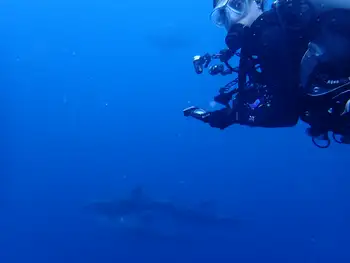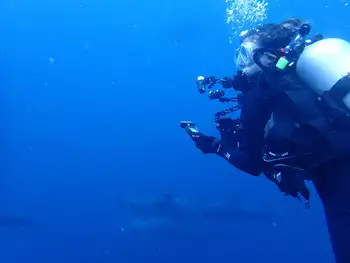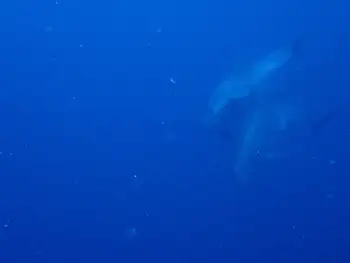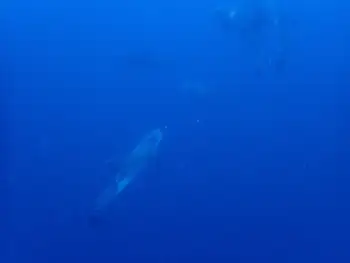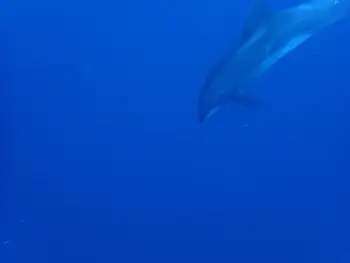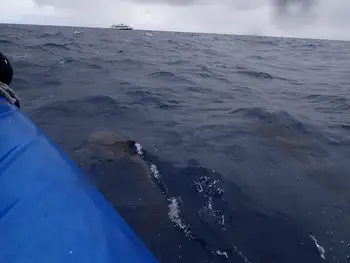Taxonomy
Animalia
Chordata
Mammalia
Cetacea Delphinidae Tursiops truncatus
Bottlenose DolphinCut-off Dolphin-face Dolphin Whale-group
Cetaceans (from Latin: cetus, lit. 'whale', from Ancient Greek: κῆτος, romanized: kētos, lit. 'huge fish', sea monster) are aquatic mammals constituting the infraorder Cetacea. Key characteristics are their fully aquatic lifestyle, streamlined body shape, often large size and exclusively carnivorous diet. They propel themselves through the water with powerful up-and-down movement of their tail which ends in a paddle-like fluke, using their flipper-shaped forelimbs to maneuver. While the majority of Cetaceans live in marine environments, a small number exclusively reside in brackish water or freshwater. Having a cosmopolitan distribution, they can be found in some rivers and all of earth's oceans and many species inhabit vast ranges where they migrate with the changing of the seasons.
Cetacea. Retrieved November, 05 2021, from en.wikipedia.org/wiki/Cetacea.
Oceanic dolphins or Delphinidae are a widely distributed family of dolphins that live in the sea. Thirty extant species are described. They include several big species whose common names contain "whale" rather than "dolphin", such as the Globicephalinae (round-headed whales including the orca and pilot whale). Delphinidae is a family within the superfamily Delphinoidea, which also includes the porpoises (Phocoenidae) and the Monodontidae (beluga whale and narwhal). River dolphins are relatives of the Delphinoidea.
Delphinidae. Retrieved November, 05 2021, from en.wikipedia.org/wiki/Oceanic_dolphin.
The common bottlenose dolphin or Atlantic bottlenose dolphin (Tursiops truncatus) is the most well-known species of the family Delphinidae.
The common bottlenose dolphin is the most familiar dolphin species due to the wide exposure it receives in captivity in marine parks and dolphinaria, and in movies and television programs. It is the largest species of the beaked dolphins. It inhabits temperate and tropical oceans throughout the world, and is absent only from polar waters. While formerly known simply as the bottlenose dolphin, this term is now applied to the genus Tursiops as a whole. These dolphins inhabit warm and temperate seas worldwide. As considerable genetic variation has been described among members of this species, even between neighboring populations, many experts consider that additional species may be recognized.
Tursiops truncatus. Retrieved November, 05 2021, from en.wikipedia.org/wiki/Common_bottlenose_dolphin.
